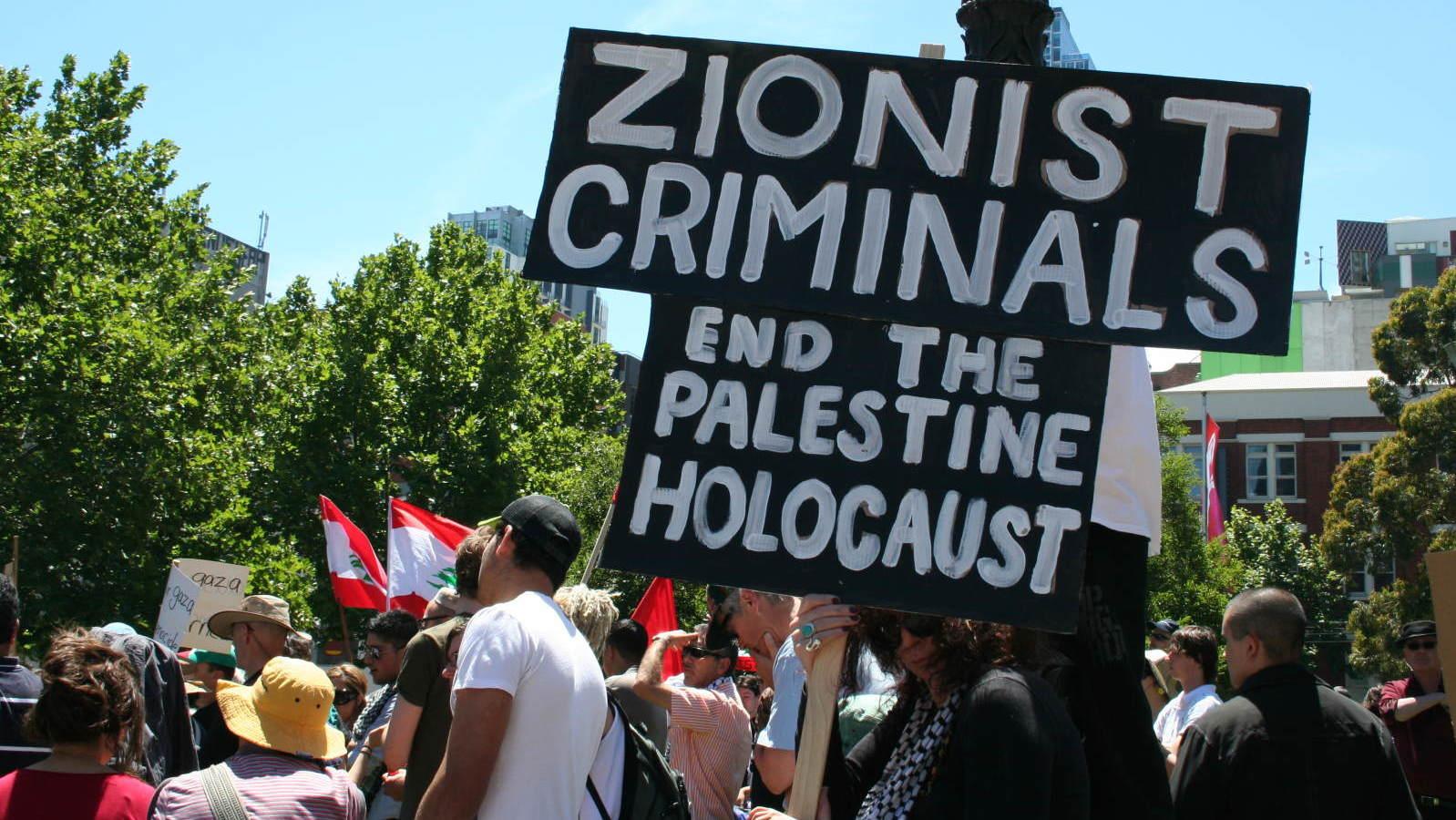After Sunday's Pogrom, Jews Are Called To Defend Themselves In Court
Brave individuals are needed to go to court and demand protection from Jew-hating thugs.

On Sunday a crowd of violence-craving Jew haters ambushed and blocked the entrance to a synagogue in Los Angeles, enraged that property in Israel was being offered for sale to interested Jews. The failure of the LA Police to prevent Sunday’s violent attacks on Jews prompts the obvious question: Can’t you sue somebody to make this stop? The answer is yes, but with one important and entirely attainable yet too often elusive condition: You need to have people brave enough to stand up to the haters and use their name in court.
Police exist to protect the community from crime, especially violent crime. But you can’t just go to court and complain that the police didn’t show up when they should have; courts don’t want to be in the business of governing police departments.
But what courts can certainly do is require equality: Jews are entitled to the same kind and degree of protection for their events that all other groups get. The LA police certainly know how to show up, and they do show up to ensure safety when the people being protected aren’t Jews, especially the “wrong” kind of Jews—you know, traditional Jews who live the commitment to Zion that’s at the center of our Torah, our beliefs, customs, and rituals. It certainly doesn’t look like there was equality in this case.
What happened outside Congregation Adas Torah happened because the LA police treated this event differently than they treat similar events when violence is reasonably expected. Here are just a few of the things they did, and didn’t do, when they do the opposite for everyone else:
1) They didn’t put up barriers to separate ideological opponents, when they routinely use that tool to protect people from demonstrators who are expected to be menacing or violent.
2) They didn’t ensure that the Jews trying to get into their shul could do so safely. Instead they left the pro-Hamas crowd right on the sidewalk leading to the shul’s front door.
3) They either issued a permit for a demonstration to people who they had reason to expect would be violent and threatening, or they didn’t even require one. The LA police have seen these people in action before; the Hamasniks threaten violence clearly, and in English. The police should have reasonably known what was bound to happen.
Noah Pollak, as reported in the Jewish Journal, shared on X what he saw:
“The LAPD let the Hamas supporters take over the sidewalk in front of the shul and block its entrance. In fact, LAPD had formed a cordon around the front of the shul to keep Jews out and Hamas supporters in. I tried to enter with my kids through the front door and was turned away not by Hamas supporters but by the LAPD. Anyone who wanted to attend had to use a secret back entrance.”
Los Angeles Mayor Karen Bass and the LAPD can make all the statements they want about antisemitism being “unacceptable,” but facts are facts and failure to act is failure to act. The Sunday pogrom on the Jews of Pico happened because the city of LA failed to act to prevent it.
This has all the markings of focused inequality and can and should be challenged in court.
So, back to that critical condition required for taking legal action.
The condition is that Jews who were there, who were affected by what happened on that day, and who have personal knowledge of what went down, must come forward and be prepared to sue. They have to be willing to be publicly identified as plaintiffs.
The videos from Sunday’s riot showcased Jews who showed up in a concerted and serious way, while protestors wore masks so they could hide their identity. The Jews didn’t wear masks to hide; they didn’t run away; they didn’t cower and whimper.
If we’re going to go to court to legally challenge what happened on Sunday, we need Jews willing to show up again—this time in court.
Lori Lowenthal Marcus is the legal director of The Deborah Project, a public interest law firm that asserts and defends the civil rights of Jews.